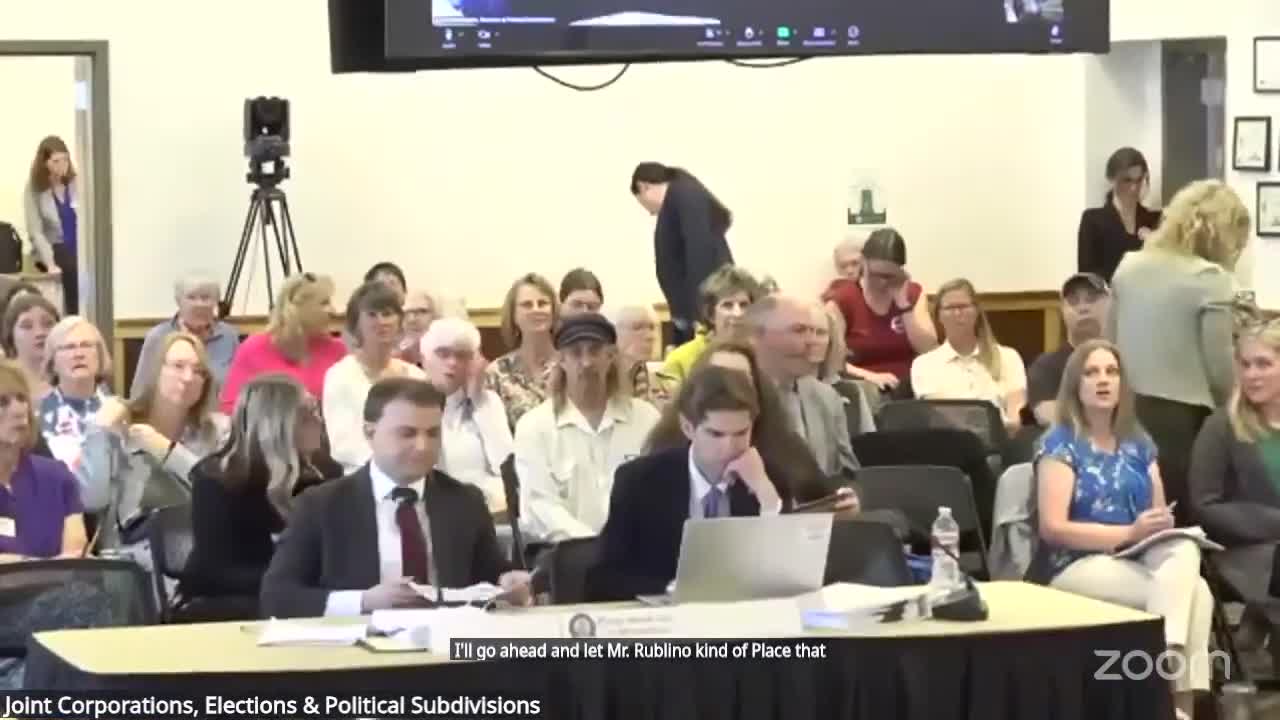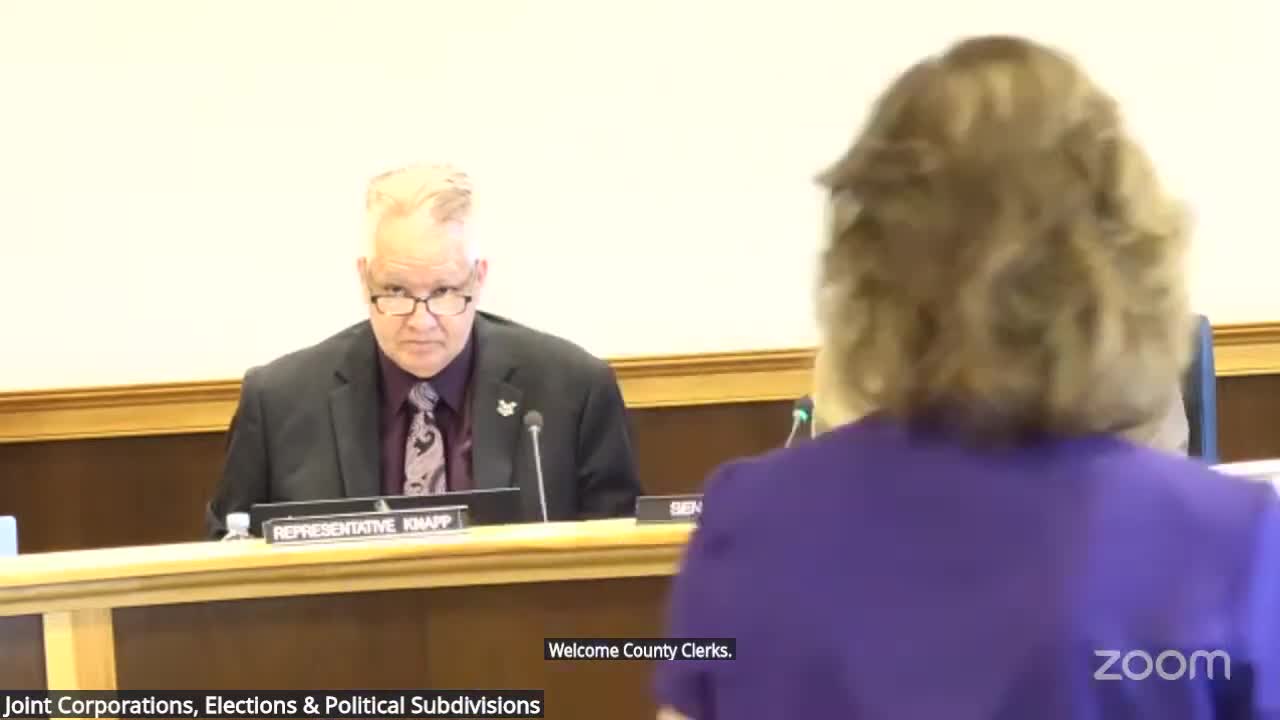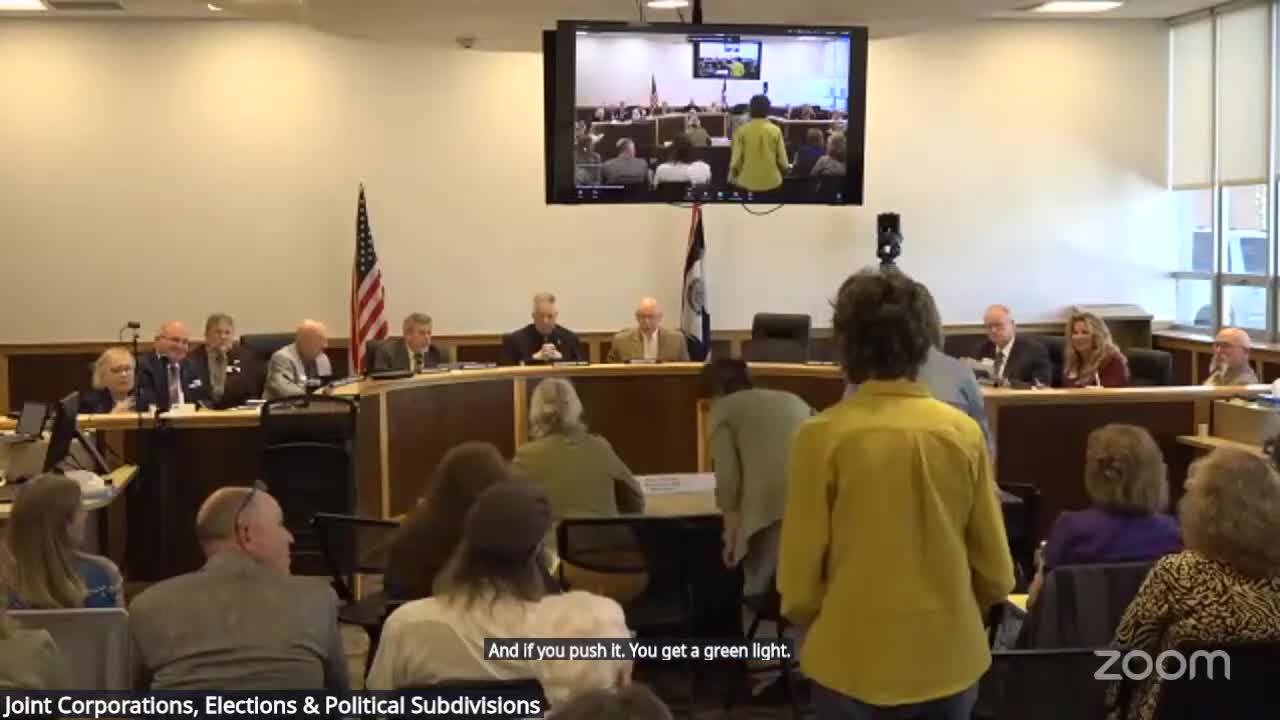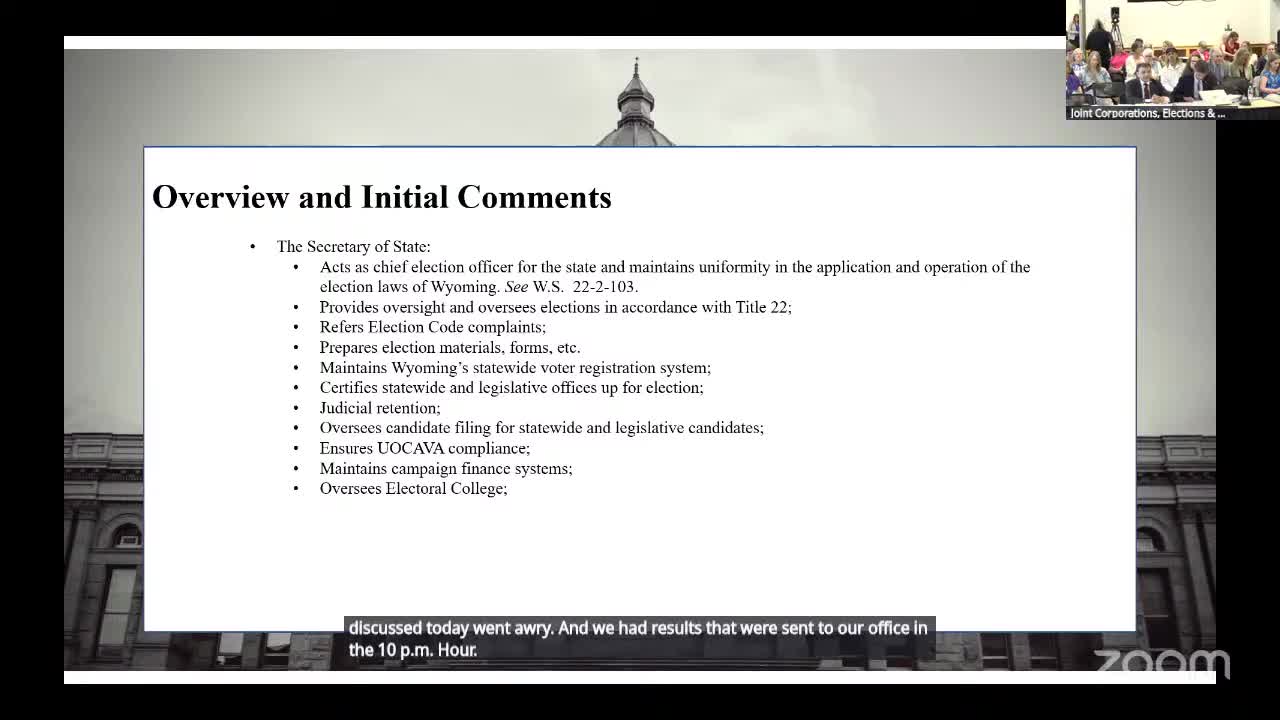Article not found
This article is no longer available. But don't worry—we've gathered other articles that discuss the same topic.

Secretary of State briefs committee on 2025 election‑law changes and presidential executive order on election integrity

Wyoming county clerks demonstrate logic-and-accuracy testing, chain-of-custody and post-election audits

Voter‑access groups at committee: focus on turnout, not more restrictions

